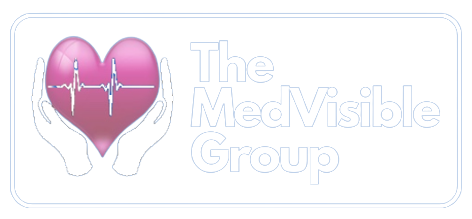Revolutionizing Healthcare: AI & ML's Impact
July 5, 2023
In recent years, the healthcare industry has witnessed a remarkable transformation with the integration of artificial intelligence (AI) and machine learning (ML) technologies. As a seasoned healthcare management consulting firm, we understand the significance of these advancements and their potential to revolutionize patient care, operational efficiency, and overall outcomes. In this article, we will delve into the growth of AI and ML in healthcare, discuss current industry trends, explore potential risks and benefits, and provide insights into how companies can best prepare for this transformative era.
Current Industry Trends
1. Enhanced Diagnosis and Treatment: AI and ML algorithms can analyze vast amounts of patient data, including medical images, electronic health records, and genetic profiles, to assist clinicians in making more accurate and timely diagnoses. These technologies also enable personalized treatment plans, leveraging predictive analytics to identify the most effective interventions for individual patients.
2. Predictive Analytics for Preventive Care: By leveraging historical patient data, AI and ML algorithms can identify patterns, risk factors, and early indicators of diseases, enabling healthcare providers to implement proactive and preventive interventions. This shift from reactive to proactive care has the potential to significantly improve patient outcomes and reduce healthcare costs.
3. Streamlined Administrative Processes: AI-powered automation can streamline administrative tasks such as appointment scheduling, medical coding, and billing processes, freeing up valuable time for healthcare professionals to focus on patient care. This automation not only enhances operational efficiency but also reduces the likelihood of human errors and improves overall data accuracy.
4. Drug Discovery and Development: AI and ML techniques are being employed to accelerate the drug discovery and development process. These technologies can analyze vast amounts of biomedical data, identify potential drug candidates, predict drug interactions, and optimize clinical trial design. Such advancements have the potential to reduce drug development timelines, increase success rates, and ultimately bring life-saving medications to patients faster.
Potential Risks
1. Data Privacy and Security: The adoption of AI and ML in healthcare requires access to large amounts of sensitive patient data. It is crucial to ensure robust data privacy and security measures to protect patient confidentiality and comply with regulatory requirements. Consulting professionals can assist companies in implementing data governance frameworks and developing strategies to mitigate privacy risks.
2. Ethical Concerns: The ethical use of AI and ML in healthcare is a paramount consideration. Transparency, fairness, and accountability in algorithmic decision-making are critical to ensure patient trust and prevent bias or discrimination. Consulting professionals can guide companies in adopting ethical frameworks, establishing governance mechanisms, and implementing explainable AI models.
Potential Benefits
1. Improved Patient Outcomes: AI and ML technologies have the potential to transform patient care by enabling early detection, accurate diagnosis, and personalized treatment plans. This can result in improved patient outcomes, reduced hospital readmissions, and increased overall patient satisfaction.
2. Enhanced Operational Efficiency: Automation of administrative tasks and streamlined processes can significantly improve operational efficiency within healthcare organizations. This allows healthcare professionals to focus more on patient care, reduces administrative costs, and optimizes resource allocation.
3. Cost Reduction: AI and ML can identify inefficiencies in healthcare processes, optimize resource utilization, and reduce unnecessary tests or procedures, leading to cost savings. Moreover, the potential to predict and prevent chronic diseases can help shift the focus from costly treatments to cost-effective preventive measures.
Preparing for the AI and ML Era
To prepare for the rapid growth of AI and ML in healthcare, partnering with experienced consulting professionals can prove invaluable. These professionals offer the following guidance:
1. Strategic Planning: Consulting professionals can help healthcare organizations develop comprehensive strategies for integrating AI and ML technologies, aligning them with organizational goals and regulatory requirements.
2. Data Readiness: Assessing the readiness and quality of healthcare data is crucial. Consulting professionals can guide companies in data collection, standardization, and integration to ensure the availability of high-quality data for AI and ML applications.
3. Talent Acquisition and Training: Building a competent team capable of understanding and leveraging AI and ML technologies is essential. Consulting professionals can assist in talent acquisition, training programs, and organizational change management to support a successful transition.
4. Collaboration and Partnerships: The complexity of AI and ML implementation often requires collaboration with technology partners, academic institutions, and other healthcare organizations. Consulting professionals can facilitate partnerships and help navigate the regulatory landscape.
The growth of AI and ML in healthcare presents immense opportunities for improving patient care, operational efficiency, and cost-effectiveness. However, it is crucial for healthcare organizations to address potential risks, embrace ethical considerations, and develop robust strategies for successful adoption. By engaging experienced consulting professionals, companies can navigate this transformative era and unlock the full potential of AI and ML technologies in healthcare.
